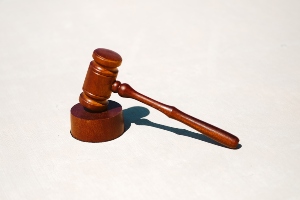Setting the Stage for Success at Mediation, Act 2: Preparing the Defence
Preparation, Preparation, Preparation…
As with all other aspects of litigation, preparation for mediation is the key to a successful result. It starts as early as choosing the most opportune time for the mediation – when your client’s case will be at it optimum – and selecting the most appropriate mediator for the case.
Selection of the mediator is an oft overlooked potential advantage. Rather than adhering to any name on a rote list of acceptable mediators, careful consideration of the specific mediator best suited to mediate the unique dispute is a worthwhile exercise.
Do you need a mediator with subject matter expertise-one who will be evaluative and express an opinion on a critical, central legal issue you believe to be favourable to your client? Or would a facilitative or hybrid mediator (a cross between an evaluative and facilitative mediator), who is knowledgeable and experienced, but who has the personality capable of getting to the bottom of the real interests driving the parties, be better suited? Would your client benefit from an empathetic mediator who can make a personal connection with your client or with the plaintiff? Would the age or gender of the mediator make a difference? These are but a few of the considerations that should factor into your selection of a mediator.
Also remember the importance of instilling in your client confidence in the mediator selected, as this can be invaluable in the course of the mediation when the mediator’s input, views or opinion are being weighed. Time invested in enhancing the mediator’s authority with your client will pay off many times over when crunch time comes.
Once your mediation has been scheduled maintain open lines of communication with opposing counsel. Often after a mediation has been scheduled, counsel don’t speak again until the day of mediation. But thorough preparation entails knowing your opponent. Stay in touch with counsel; talk about the file and the issues involved- it is to your advantage to understand how opposing counsel views the case and to discern the knowledge, experience and tactics of your opponent. What better way to know your counterpart than by keeping the lines of communication open and by speaking regularly with them. As defence counsel, you should ensure that between the time of scheduling the mediation and the actual day of the mediation, that you remain in the best position to settle your client’s case in the most advantageous fashion.
This includes ensuring that you obtain full production of all relevant documentation and information, both from opposing counsel and also from your own client and potential witnesses. Make sure that you receive all opposing expert opinions in a timely fashion-such that you are in a position to report to your client and to retain a responding expert with sufficient time to author a report in advance of the mediation.
Timely disclosure can be achieved by entering into a timetable for delivery of materials with opposing counsel at the same time as the mediation is scheduled. Counsel are far more likely to adhere to a schedule which they personally agree to, or to subsequently agree upon a timely cancellation and rescheduling in the event that there is an inability to meet the original timetable.
The next step in the process of preparing for a successful mediation is one of the most important, if not the most critical step-clearly and concisely conveying to your client a detailed analysis of the potential outcomes.
This analysis should include:
- an assessment of the strengths and weaknesses of your case, both from a legal and evidential perspective;
- the chances of success or, put another way, the risks associated with proceeding to a trial outcome;
- the realistic potential range of damages that might be proven and/or awarded;
- the costs associated with proceeding forward with the case in the absence of a negotiated resolution, including the potential costs payable to the other side if the case is lost as well as the potential recovery of costs if successful;
- and finally, the range of settlement authority being requested in order to resolve the case.
A very careful analysis of these issues will allow the defence to appreciate the downside risks and to be in a position to mount the best available case, but at the same time, to have sufficient funds to reach a suitable compromise.
This analysis should be prepared and forwarded to your client well in advance of the mediation so that your client is able to obtain the requisite settlement authority. This may be of particular importance where the client is an insurance professional who will require time to report up the chain of command and to obtain settlement authority.
Typically defence counsel and the client do not meet until the morning of the mediation to discuss the strategy to be employed at the mediation. However, it is better to have that strategy discussion, at least by telephone, before arriving at the mediation. The discussion should include:
- the approach that will be taken during the opening statements;
- whether the client will participate in the opening statements and if so, how best to optimize that participation;
- will an apology be effective, will it be made and if so, by whom;
- the planned negotiation strategy;
- how to best utilize the services of the mediator;
- what aspects of the case might be compromised; and
- ideally, where the client would like to end up.
Discussing your plan of attack in advance can result in a much more effective negotiation and ultimately a better result.
For the defence, perhaps even more than the plaintiff, engagement in a mediation represents a significant investment of time, funds and legal resources. To make sure that investment brings the best returns all of the factors above should be developed as thoroughly as possible. This maximizes your chance for achieving a resolution that satisfies your client. And at the end of the day isn’t that really what it is all about?

